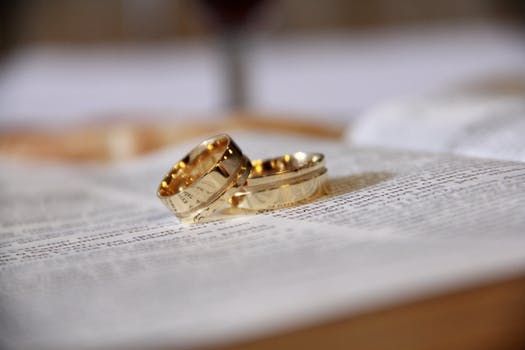

Jersey's Chief Minister has had to defend proposals to allow same-sex couples to marry following criticism that his plans fail to remove discrimination, are inconsistent and full of errors and omissions.
Later this month the island's politicians are due to discuss the detail of proposed changes to the marriage law, which were actually agreed in principle more than two years ago, but only put forward last October.
Yesterday, a hearing between the Corporate Services Scrutiny Panel, chaired by Deputy John Le Fondré, and the Chief Minister, Senator Ian Gorst and Assistant Chief Minister, Senator Andrew Green, heard how the new marriage law does not remove discrimination between same-sex, and heterosexual, couples.
Deputy Le Fondré, sitting with Vice-Chair Deputy Simon Brée and Deputy Kevin Lewis, raised questions over errors they had spotted within the document.
The Chief Minister admitted that it had been rushed, explaining: “…it’s been a very tough and tight timetable. (…) there has been unnecessary pressure on officers and a lot of negative criticism to Ministers, which has been unfair.”

Pictured: Chief Minister, Senator Ian Gorst admitted the new law is missing legislation.
The draft law – which is to be debated by the States Assembly next week – has a number of inconsistencies, conflicts and gaps: including the option of both marriage and civil partnership to same-sex couples, but only the marriage option for heterosexual couples.
Religious places can also refuse to marry a transgender person - despite them being recognised in the eyes of the law as a male or female – when they are marrying a person of the opposite sex.
And the law doesn’t enable same-sex couples to sue for divorce on grounds of adultery, as the law states a man must be involved - a missing piece of divorce legislation which Deputy Brée labelled as “wrong."
Senator Gorst agreed with the Vice-Chairman, but explained: “These are very challenging and technical areas, (but it’s) opening up another Pandora box of law reform that will push this further (from the scheduled debate).
“I’m sorry we are here and the proposals aren’t in front of you, as I agree with you, but we need to move forward.”
But Deputy Brée argued: “…there are many, many areas that need to be reviewed. You’re asking an awful lot of States Members to make a decision, which as we stand today, isn’t a sensible move to make. Isn’t it better to withdraw?”
The Chief Minister felt a delay wasn’t an option saying that: “States members will have the opportunity to speak to law officers,” with any questions they may have.
Senator Andrew Green added: “Changing time doesn’t change the complexity of the law. It’s a very complex law.”

Pictured: Scrutiny hearing raised issues of discrimination within new marriage law draft.
The panel raised questions over the Government's plans to include a ‘quadruple lock’ within the plans, which will legally allow a religious organisation or official to refuse to marry same-sex couples, describing it as an opening to allow religious groups to discriminate.
But they also questioned why a ‘conscience clause’ hasn’t been included to give people, who are not members of religious organisations, the right to refuse to act against their own beliefs.
Senator Andrew Green explained their decision saying: "A conscience clause encourages and allows for more discrimination.”
The Chief Minister said: “I’ve kept revisiting the issue. We do see elsewhere cases we wouldn’t want to replicate here. Finding a remedy in the law is difficult. (…) We don’t want to criminalise people who object on religious grounds,” but he adds: “protection for religious beliefs and not promoting discrimination is really difficult. I can’t see anywhere currently who have got that proportion right. (...) How do we present a legislation that’s not discriminatory but also human right compliant?”
Comments
Comments on this story express the views of the commentator only, not Bailiwick Publishing. We are unable to guarantee the accuracy of any of those comments.